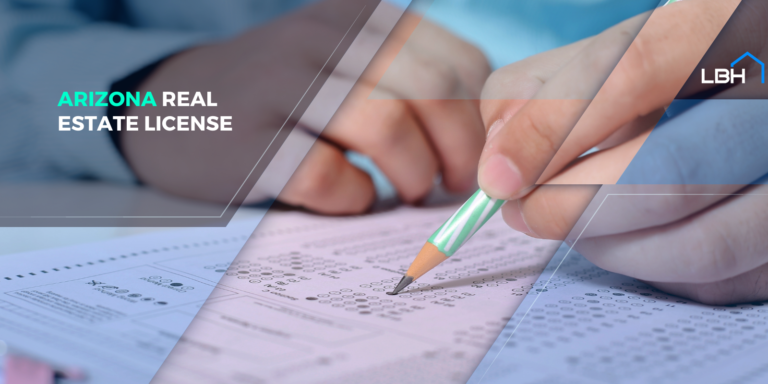Are you passionate about real estate or ready to pursue a rewarding career? If so, becoming a licensed real estate agent may be right for you. This career allows you to be your own boss and reap significant financial benefits. The first initiative in this exciting journey is obtaining your real estate license. But the major question among most people is: What does it take to get a real estate license?
This guide will provide step-by-step instructions on how to get your real estate license. It will also cover the many benefits of becoming a real estate agent and tips on how to know if this career path is the right fit for you.
What Is a Real Estate License?
A real estate license is a formal credential issued by a state’s real estate commission. This permit gives you the legal authority to assist clients in buying, selling, or renting property within the state. This includes showing properties, negotiating deals, and handling the paperwork involved in real estate transactions.
Why Should You Get a Real Estate License?
You should get a real estate license for the following reasons:
Legal Authorization
A real estate license is required by law to oversee real estate transactions in all states. Without it, you could face legal consequences if you oversee real estate transactions.
The Potential for High Income
Real estate is a lucrative field with considerable income potential. According to real estate market data, the average salary for a real estate agent is $84,087, but there is virtually no ceiling to what you can earn.
It’s worth mentioning that your earnings largely depend on the amount of effort and time you invest. Your adeptness at networking, negotiating, and closing deals also plays a role.
Professional Credibility
Having a real estate license boosts your professional credibility. It shows clients that you have received the necessary training and have legal permission to operate in the real estate field. This can help you build strong work relationships.
Flexibility and Autonomy
Real estate agents have the autonomy to decide their schedules. It is the ideal career if you prefer a flexible work-life balance or have other commitments outside work. You also have the freedom to choose which properties and clients you want to work with, giving you more control over your career.
Other benefits include the opportunity to network and help the community. You also learn and develop valuable skills such as negotiation and marketing.
7 Steps on How to Obtain a Real Estate License
If you would like to enjoy the benefits of being a licensed real estate agent, here are the steps to getting a real estate license:
Step 1: Choose a License
You will first need to have a clear goal regarding the type of real estate license you wish to obtain. There are two types of real estate licenses: salesperson and real estate broker licenses.
A salesperson license allows you to conduct property transactions under the guidance and supervision of a sponsoring broker. This license is often the starting point for many aspiring real estate professionals. It is less rigorous and requires fewer educational hours than the real estate broker license.
A broker’s license offers more independence. It allows you to establish your own real estate agency. However, it demands a higher level of responsibility and knowledge. This usually involves more coursework and a more challenging examination.
The choice between a real estate salesperson license and a broker’s license depends on your career aspirations. A broker’s license would be more fitting if you aspire to run your own agency. If you are starting and would prefer to learn the ropes under the mentorship of a more experienced professional, a salesperson’s license may be a more suitable choice.
Step 2: Understand Your State’s Requirements for How to Get a Real Estate License
Each state in the U.S. has criteria you must meet to become a licensed real estate agent. Make sure you understand the requirements in your state.
Most states require you to be over the age of 18. In most states, you also need a high school diploma or its equivalent. Some states, such as Texas, allow you to bypass the education requirement but make up for it with additional coursework.
Background checks are also common. They ensure you have a clean criminal record, which is crucial for this profession as it involves handling large sums of money and people’s properties.
Some states also have reciprocal agreements with other states, letting you get a real estate agent license more easily if you’re already licensed in another state. New York, for instance, has reciprocity with nine states. These are Arkansas, Colorado, Connecticut, Georgia, Massachusetts, Mississippi, Oklahoma, Pennsylvania, and West Virginia.
Step 3: Complete Real Estate Courses
Real estate is a highly regulated industry. Each state requires every aspiring real estate agent to complete a pre licensing course. These real estate courses will ensure you understand state laws, regulations, and ethics in real estate transactions. It prepares you for the responsibilities and challenges of the real estate world.
It’s crucial to be diligent in this phase. The information you will acquire will form the foundation of your real estate career in addition to helping you pass the licensing exam.
The number of education hours required varies by state but typically ranges from 60 to 180. For instance, California requires a total of 135 hours, while Texas mandates a substantial 180 hours. You can choose between online or in-person classes from a state-approved real estate school.
Remember, the real estate market is ever-evolving. Thus, continuous education and staying updated on industry trends is vital. A pre licensing course is the first step towards that goal.
Step 4: Pass the Real Estate License Exam
There’s a final real estate licensing exam at the end of your pre licensing course. Passing this exam confirms you’ve understood the pre-license courses. The real estate licensing exam comes at a fee, which varies from state to state. For example, California charges $60, New York $15, Florida $36.75, and Texas $43.
The licensing exam consists of national and state-specific segments. The national section covers general real estate principles and practices, while the state-specific section delves into real estate laws in your state.
It’s essential to prepare thoroughly for this exam. Start by reviewing the course material. Many real estate schools also offer practice tests. Online resources such as practice quizzes and study guides can also help.
Step 5: Submit an Application for Your Real Estate License
This step involves submitting an application form and application fees to your state’s licensing authority. The application fees can range between $50 and $250.
Before submitting your application, check if you need Errors and Omissions (E&O) insurance. This insurance protects you against lawsuits in case of any errors or omissions during real estate transactions.
You’ll need to provide your personal information and education details. It’s crucial to answer all questions honestly. Any discrepancies could cause delays or even lead to a denial of your application. Proof of taking pre-licensing courses and passing the licensing exam will also be required.
About half of the states also require applicants to undergo a background check. This will involve providing fingerprints and consenting to a criminal record search. A background check will set you back between $40 and $100.
The application takes one week to two months to be processed. Once approved, the licensing body will mail your license to you. Remember, a license for new real estate agents requires renewal every one to four years, depending on your state’s requirements.
Step 6: Consider Becoming a Realtor
If you want to elevate your real estate career, consider becoming a realtor. A realtor is a real estate agent who is a member of the National Association of Realtors (NAR). Realtors adhere to a strict code of ethics.
To become a realtor, you’ll need to join a local association affiliated with NAR. This requires a membership fee and completing a code of ethics course.
NAR gives you access to a broad network of professionals, which can help grow your business. You’ll also have access to various resources, including market data. Clients also tend to trust realtors more, as they are held to a high standard of professionalism and ethics.
However, there are additional costs involved in becoming a realtor. They include annual membership fees, amounting to $150 for 2023 and $156 for 2024. Be sure to weigh these costs against the benefits to aid your decision-making.
Step 7: Consider Becoming a Real Estate Broker
You must work under a sponsoring broker when you start your career as a real estate agent. It’s essential to do your homework when choosing a real estate brokerage. Look for a firm that supports your career goals. Some brokerages offer training and mentorship programs for new real estate agents, which can be invaluable.
It’s also important to consider how they distribute their leads and if they provide a strong marketing strategy to help you get clients.
Choose a brokerage with a commission split that aligns with your goals. High-split plans often come with less salary, support, and resources, while traditional split plans offer more salary, support, and resources. The hybrid plan, which combines the high and traditional splits, may also be worth considering.
How to Decide If Being a Real Estate Agent Is the Right Career for You
Below are several aspects to consider when deciding if a career in real estate is the right fit for you:
- Analyze Your Interests
This career involves a lot of human interactions, leg work, and back-and-forth negotiations. If you find these activities appealing, you may thrive as a real estate agent.
- Evaluate Your Skills
Successful real estate agents are excellent communicators, analysts, and negotiators. If you possess or can develop these skills, you might be well-suited to this line of work.
- Consider Your Lifestyle
Real estate agents usually have flexible work schedules. They typically adjust their availability to meet that of their clients. This means their availability is more centered during evenings and weekends. If you are comfortable with this type of schedule, a career in real estate may be right for you.
- Assess Your Financial Stability
Real estate is a commission-based profession. While there is potential for high income, building a clientele and earning on a consistent basis takes time and effort. Make sure you’re financially prepared for this.
- Education and Licensing
Getting a real estate license requires taking a course and passing an exam. Consider if you’re prepared for this commitment.
- Passion for Real Estate
The most successful real estate agents have a genuine passion for the industry. They enjoy home hunting, market research, and negotiating for their clients. If this sounds appealing, this career path may serve you well.
- Think About the Competition
Like any other industry, real estate is not a strong fit for people who fear competition. Many people have now realized the advantages of this field, leading to an increase in the number of licensed real estate agents.
As of August 2023, there were 1,573,994 realtors in the United States, according to the National Association of Realtors. But there is enough room for everyone, as long as you are determined and hardworking.
Is Now a Good Time to Become a Real Estate Agent?
Now is a great time to become a real estate agent. Even though interest rates are high, the demand for housing is continuously increasing. The result is an increase in home prices, hence a rise in the need for real estate professionals.
The rising demand also means high home prices. This translates to more commissions for a real estate agent. Additionally, the real estate market has evolved considerably. This has made it hard for the average person to sell or buy a property without the help of a real estate agent.
The Bottom Line
Becoming a real estate professional is a rewarding journey. But you first need a license. The process of getting a real estate license includes meeting the eligibility requirements, thorough education, and passing a state exam. Remember there are costs to consider, including exam and application fees.
At the end of it, you will need to choose a real estate brokerage. Choose one that fits your career goals and offers the support and resources you need to succeed. You can also consider the National Association of Realtors membership to turbocharge your career and network.












